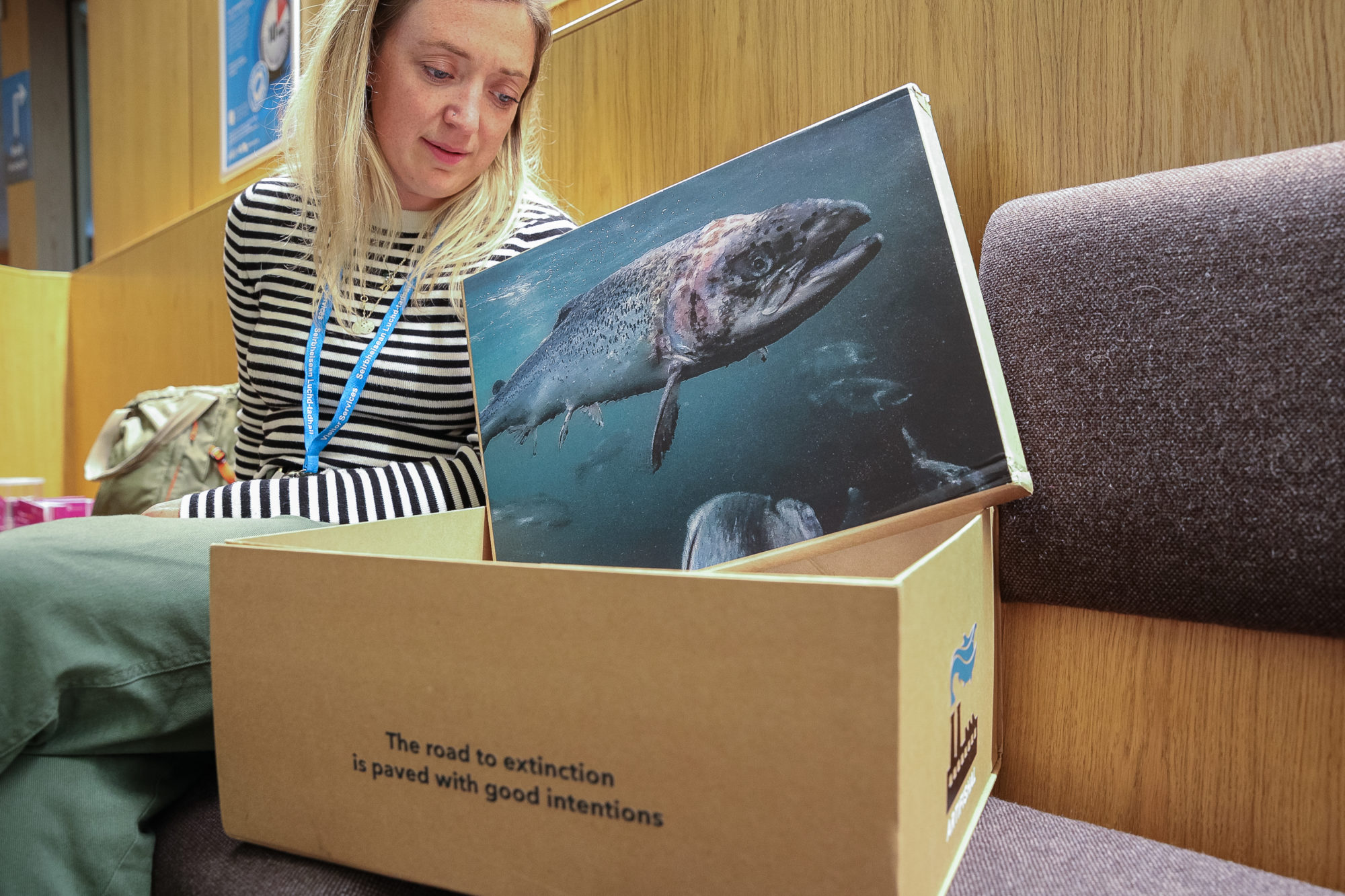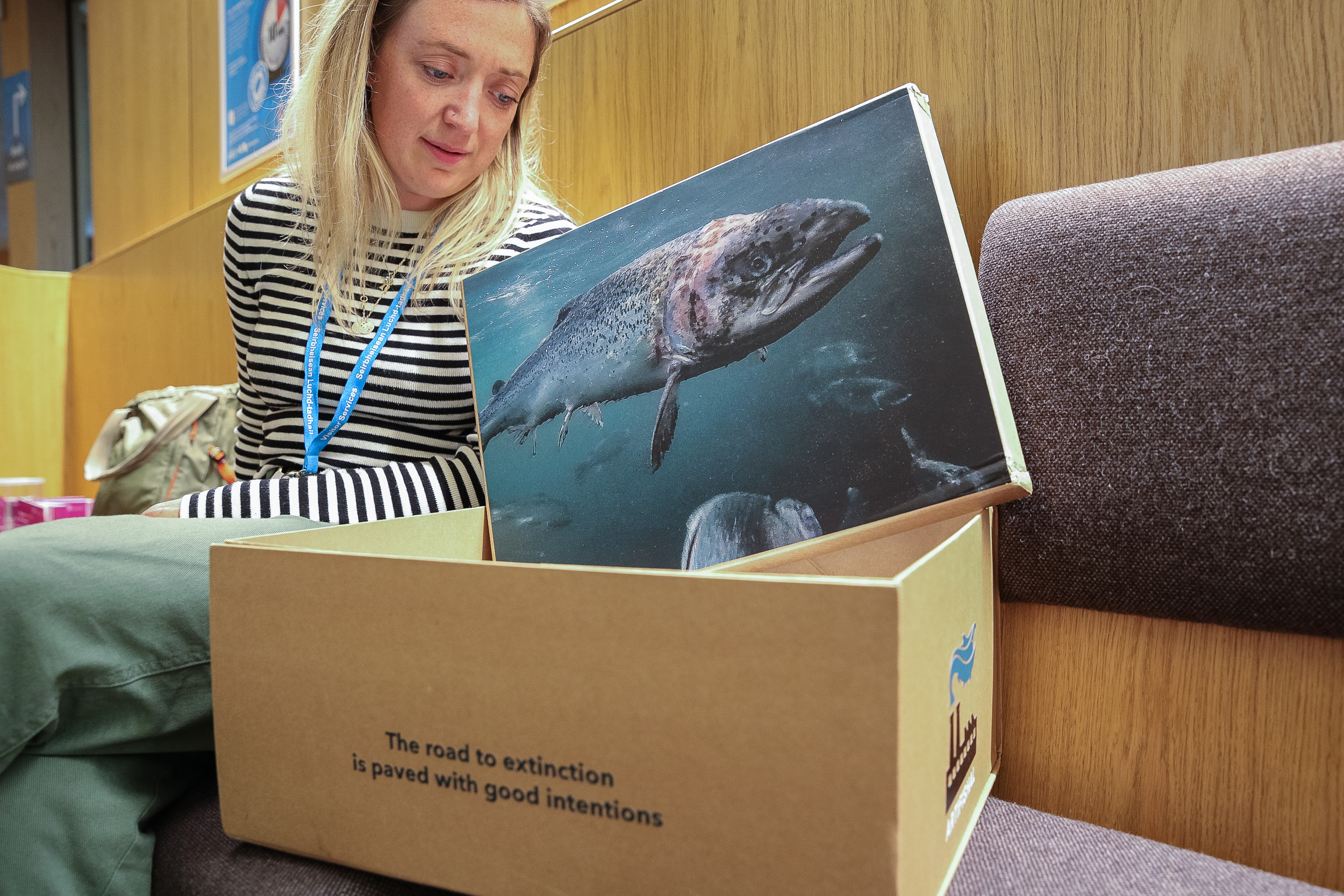PATAGONIA: ARTIFISHAL 175.000 signatures
Last spring Patagonia launched the Artifishal campaign to highlight the devastating effect of fish farms. The homonymous documentary by Liars & Thieves!, created in collaboration with the company, explores the high ecological, financial and cultural cost of our mistaken belief that engineering solutions can compensate for the destruction of natural habitats. The film denounces the impact of fish farms, an industry that hinders the recovery of wild fish, pollutes our rivers and contributes to the problem it claims to solve.
The European campaign, in support of the environment, documenting the processes of the salmon farming industry in Iceland, Norway, Scotland and Ireland, asked the public to sign a petition addressed to the governments of these countries to prohibit the practice of salmon farming in network fences in the open sea.

Together with one of the local NGOs fighting for this cause, the Salmon and Trout Conservation Scotland, thre members of the European Patagonia team delivered 175000 signatures to the ScottishParliament, calling for phasing out salmon farms in net fences at sea open, threatening wild fish and the surrounding wilderness.
The text of the petition reads: “To the governments and parliamentarians of Iceland, Norway, Scotland and Ireland: from all European citizens, we invite you to put an end to the devastation of wild fish and surrounding ecosystems caused by salmon farms in open nets. We ask you to impose an immediate ban on the opening of new production facilities so structured and to undertake to gradually eliminate existing ones.“
Gillian Martin, a member of the Scottish Parliament and President of the Commission for the Environment, Climate Change and Agrarian Reform, received the petition. This committee has already proposed stricter regulation for the salmon industry and will now have to maintain pressure on the government to comply with these recommendations.
If implemented, the regulations will help eliminate the use of network fences in the open sea, which allow the spread of pests, diseases and pollution. These nets can also be damaged, allowing thousands of farmed salmon to escape, putting the wild population at serious risk of genetic contamination.

